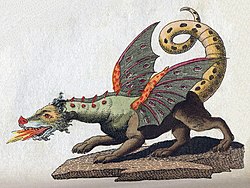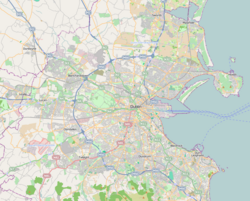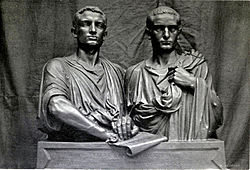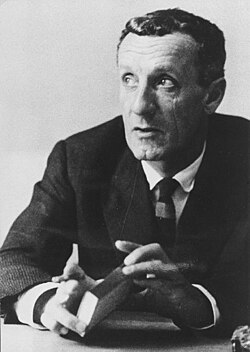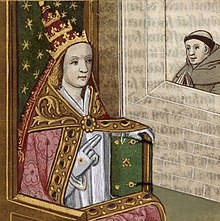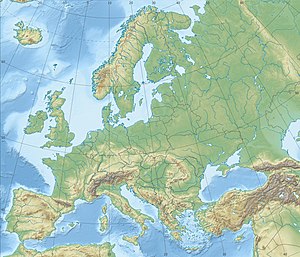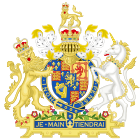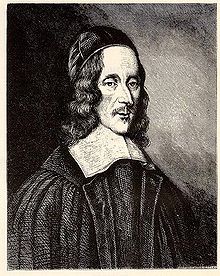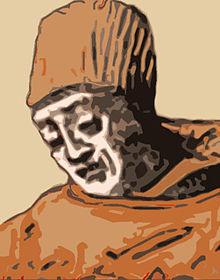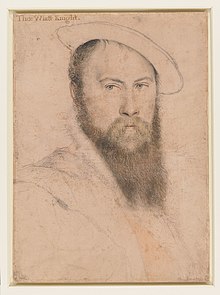
Civility: talking with those who disagree with you
Melvyn Bragg and guests discuss ideas about the best aspects of civility (and the worst) from the Renaissance to today as explored by Hobbes, Williams, Locke and Rawls.
Dragons
Dragons have breathed fire into folklore, literature and popular culture from the ancient world to the Christian Bible, the tales of Tolkien to The Game of Thrones.
DragonsFairy tale stock characters
Barbour's 'Brus'
Melvyn Bragg and guests discuss ideas of chivalry and freedom in John Barbour's c1375 epic on Robert the Bruce and Bannockburn, the earliest surviving poem in Older Scots.
The Evolution of Lungs
Melvyn Bragg and guests discuss the diverse ways animals extract oxygen from air, from the highly tuned lungs that enabled dinosaurs to grow tall and birds to fly high, to buccal pumping.
The Vienna Secession
A discussion of the aesthetic movement that emerged in Vienna at the end of the nineteenth century.
Hypnosis
An exploration of hypnosis, from Anton Mesmer to present-day medical treatment.
Paul von Hindenburg
Melvyn Bragg and guests discuss the rise of a retired German officer recalled to duty who became an idealised, heroic figure and, as president, appointed Hitler as chancellor.
HistoryKnights of the Golden Fleece of Spain, Grand Crosses of the Order of Saint Stephen of HungaryGerman military personnel of the Franco-Prussian WarRecipients of the Iron Cross (1870), 2nd class, Recipients of the Pour le Mérite (military class), Independent politicians in GermanyGerman Lutherans20th-century presidents of Germany, Recipients of the Iron Cross (1914), 1st class, German anti-communistsGerman monarchistsRecipients of the Order of the Medjidie, 1st classGerman untitled nobility
Copyright
Melvyn Bragg and guests discuss the development of our legal system of copyright - from the Statute of Anne to artificial intelligence.
Lise Meitner
Melvyn Bragg and guests discuss the only woman to have an atomic element named solely after her (Meitnerium), in recognition of her role in solving the question of nuclear fission.
ScienceRecipients of the Austrian Decoration for Science and ArtForeign members of the Royal SocietyWomen nuclear physicistsConverts to Lutheranism from JudaismWinners of the Max Planck MedalFellows of the American Academy of Arts and SciencesDiscoverers of chemical elementsMembers of the Royal Swedish Academy of SciencesRecipients of the Pour le Mérite (civil class)Austrian LutheransJewish women scientists
The Korean Empire
Melvyn Bragg and guests discuss Korea's transition from the 500-year-old Joseon dynasty which deferred to China towards an independent nation to keep nearby imperial rivals away.
Molière
Melvyn Bragg and guests discuss the life and work of the great French playwright and actor whose best known plays include Tartuffe, Le Misanthrope and Le Malade Imaginaire.
CultureLycée Louis-le-Grand alumni17th-century deaths from tuberculosis17th-century pseudonymous writersBurials at Père Lachaise Cemetery
Typology
An exploration of typology - how characters and stories in the Hebrew Bible, or what Christians call the Old Testament, are believed to be predictions of the New Testament.
ReligionChristian terminologyChristian iconographyChristian theology of the Bible
The Battle of Clontarf
Melvyn Bragg and guests discuss Brian Boru's victory over Sigtrygg Silkbeard and his Viking allies outside Dublin in 1014, one of the best known events in Irish history.
HistoryBattles involving the Vikings
The Gracchi
Melvyn Bragg and guests discuss the impact on Roman politics of the brothers Tiberius and Gaius Gracchus and how the reaction to them helped destabilise the Republic.
History2nd-century BC RomansBrother duosPopulares
Maurice Merleau-Ponty
Melvyn Bragg and guests discuss the insights of this French philosopher into the relationship between mind and body, the role of language in thought and the value of habits
Philosophy20th-century French philosophersFrench philosophers of artEnactive cognitionFrench philosophers of educationFrench humanistsFrench political philosophersFrench epistemologistsFrench socialistsBurials at Père Lachaise CemeteryPhilosophers of psychologyAction theoristsFormer Roman CatholicsMarxist theoristsUniversity of Paris alumniFrench philosophers of scienceAcademic staff of the University of ParisLycée Louis-le-Grand alumniExistentialistsÉcole Normale Supérieure alumniOntologistsFrench male non-fiction writersFrench philosophers of cultureFrench magazine foundersPhenomenologistsAcademic staff of the Collège de France
Thomas Middleton
Melvyn Bragg and guests discuss one of the star writers for the London stage in the age of Shakespeare, much in demand for his own work and for rewriting the work of others.
Culture17th-century English male writersPeople from the City of LondonEnglish satiristsEnglish male poets17th-century English dramatists and playwrightsEnglish Renaissance dramatistsEnglish male dramatists and playwrights
Cyrus the Great
A discussion of the life and legacy of Cyrus the Great, who is said to have destroyed Babylon and enabled the Jews to rebuild the temple at Jerusalem - a contested story.
Pollination
A discussion of how plants attract insects, and insects find flowers from which they extract nectar and pollen - both food sources - and pollinate the plant in the process.
Kali
Melvyn Bragg and guests discuss the origin stories and many aspects of this Hindu goddess often shown as black or dark blue and so powerful that she alone can defeat certain demons
ReligionSupernatural beings identified with Christian saintsMother goddesses, Hindu goddesses
Oliver Goldsmith
Melvyn Bragg and guests discuss the author of She Stoops to Conquer, The Vicar of Wakefield and The Deserted Village who was a great populariser of science and history in his time.
CultureStreathamitesIrish essayistsIrish male novelistsIrish male dramatists and playwrights18th-century Irish novelists, 18th-century Irish poetsIrish AnglicansIrish male poets18th-century Anglo-Irish people, 18th-century Irish male writers18th-century Irish male writers, 18th-century Anglo-Irish peopleAlumni of the University of Edinburgh18th-century Irish poets, 18th-century Irish novelistsAlumni of Trinity College Dublin
Catherine of Aragon
Melvyn Bragg and guests discuss the Spanish Infanta so prized by the Tudors that, after her first husband the Prince of Wales died, she went on to marry his brother Henry VIII.
HistoryRegents of England, AnnulmentDaughters of queens regnantDaughters of kingsEnglish Roman CatholicsMothers of English monarchsDeaths from cancer in EnglandHouse of TudorAnnulment, Regents of England16th-century English women
Sir John Soane
Melvyn Bragg and guests explore the life and work of John Soane, architect of the old Bank of England and collector of the antiquities displayed in his home which became a museum.
CultureMuseum founders, Fellows of the Society of Antiquaries of LondonBurials at St Pancras Old ChurchFellows of the Society of Antiquaries of London, Museum foundersKnights Bachelor17th-century English architectsFellows of the Royal SocietyFreemasons of the Premier Grand Lodge of England19th-century English architects
Pope Joan
Melvyn Bragg and guests discuss the medieval legend of Pope Joan, the story of a scholarly woman in the ninth century who was said to have become the Pope.
ReligionChristian folkloreMedieval legends
Socrates in Prison
Melvyn Bragg and guests discuss Plato's accounts of the last days of Socrates in which he kept doing philosophy right up to the point of his execution by hemlock.
PhilosophyAncient Greek lawSocratesReligious persecution
The Battle of Valmy
Melvyn Bragg and guests discuss the Prussian-led plans to end the French Revolution in 1792 and their surprise defeat by an army buoyed with citizens singing the Marseillaise.
Slime Moulds
Jonathan Chubb, Merlin Sheldrake and Elinor Thompson explore slime moulds, the brainless organisms that can find their way around a maze.
Vase-mania
Melvyn Bragg and guests explore why eighteenth century collectors became so enthusiastic about ancient vases, especially Greek ones, and how Josiah Wedgwood reimagined these for consumers.
Plutarch's Parallel Lives
Melvyn Bragg and guests discuss the work of the influential Greek biographer Plutarch who compared and contrasted famous Romans and Greeks in pairs to reveal their inner lives
CultureCultural depictions of Theseus
The Habitability of Planets
Melvyn Bragg and guests discuss some of the ideas on the chemistry that was needed for life to begin and thrive on Earth and the implications for where we may find life elsewhere.
SciencePrebiotic chemistryExoplanetologyAstrobiology
Nizami Ganjavi
Melvyn Bragg and guests discuss the 12th-century Persian writer of epic romantic poetry whose fame spread from his hometown of Ganja across the Persian-speaking world and beyond.
Culture13th-century Persian-language poets1140s births
The Hanoverian Succession
Melvyn Bragg and guests discuss the struggle by Whig politicians in London to have a Protestant from Hanover crowned at Westminster Abbey rather than the Catholic son of James II.
HistorySuccession to the British crownAnti-Catholicism in EnglandConstitutional laws of EnglandHistory of Catholicism in England
Italo Calvino
Melvyn Bragg and guests discuss the author of Invisible Cities, Cosmicomics and If on a Winter's Night a Traveller and collector and translator of Italian fables.
CultureMagic realism writersItalian male novelistsCollectors of fairy talesPostmodern writers, Recipients of the Legion of HonourRecipients of the Legion of Honour, Postmodern writersUniversity of Turin alumni
The Antikythera Mechanism
Melvyn Bragg and guests discuss the 2,000-year-old Greek astronomical computer, one of the most important discoveries in marine archaeology.
HistoryHistory of scienceGreek inventions, Ancient inventionsAncient Greek scienceArchaeoastronomyAncient inventions, Greek inventionsHistory of mathematicsHistory of technologyAncient Greek technology
George Herbert
Melvyn Bragg and guests discuss the author of 'the most beautiful poem in the world' whose works on his relationship with God offered comfort to Charles I when he faced execution.
Culture17th-century English male writers17th-century deaths from tuberculosisAnglican saints17th-century Christian mysticsAlumni of Trinity College, CambridgeLutheran saintsTuberculosis deaths in EnglandProtestant mysticsAnglo-Welsh poetsPeople celebrated in the Lutheran liturgical calendarSonneteersPoet priestsAnglican writersEnglish male poets17th-century English Anglican priestsPeople educated at Westminster School, London17th-century English poetsAnglican poets
The Venetian Empire
Melvyn Bragg and guests discuss the remarkable rise of the Venetians who settled on some marshy islands on a lagoon after the fall of Rome and went on to build an empire.
Little Women
Melvyn Bragg and guests discuss Louisa May Alcott's much-read and much-adapted story of Meg, Jo, Beth and Amy March which is credited with starting the genre of young adult fiction
CultureAmerican novels adapted into films, American novels adapted into television shows, American novels adapted into playsAmerican novels adapted into plays, American novels adapted into films, American novels adapted into television showsAmerican novels adapted into plays, American novels adapted into television shows, American novels adapted into filmsAmerican novels adapted into television shows, American novels adapted into films, American novels adapted into playsAmerican novels adapted into films, American novels adapted into plays, American novels adapted into television shows
Hayek's The Road to Serfdom
Melvyn Bragg and guests discuss Hayek's 1944 book warning that the centralised planning of the wartime economy, if extended into peacetime, could lead to tyranny.
PhilosophyLiberalism in the United KingdomEconomics booksBooks about conservatismLiberalismBooks in political philosophyClassical liberalismBooks about capitalism
Robert Graves
Melvyn Bragg and guests discuss the life and works of the author of I, Claudius, especially his love and war poems and his ideas on the source of all creativity.
Culture20th-century English male writers20th-century English memoiristsBritish Army personnel of World War IEnglish writers with disabilitiesEnglish male short story writersEnglish World War I poetsJames Tait Black Memorial Prize recipientsEnglish male novelistsEnglish bisexual writers, English bisexual men, Royal Welch Fusiliers officers20th-century English poets20th-century atheistsBisexual poetsEnglish people of Irish descentEnglish literary criticsEnglish male poetsEnglish short story writers20th-century translatorsPeople with post-traumatic stress disorder20th-century English novelists20th-century English LGBTQ peopleEnglish atheistsEnglish historical novelistsEnglish bisexual men, English bisexual writers, Royal Welch Fusiliers officersBisexual novelistsPeople educated at Charterhouse SchoolOxford Professors of PoetryRoyal Welch Fusiliers officers, English bisexual men, English bisexual writersBisexual memoiristsRoyal Welch Fusiliers officers, English bisexual writers, English bisexual menEnglish male non-fiction writersPrix Italia winnersBisexual male writersEnglish LGBTQ poets20th-century English non-fiction writers
The Haymarket Affair
Melvyn Bragg and guests discuss the bombing at a Chicago workers' rally in 1886 and the trial, execution and subsequent pardoning of anarchists blamed for inciting the attack.
HistoryHistory of social movementsHistory of socialism
Wormholes
Melvyn Bragg and guests discuss the origins of the idea that there might be shortcuts between galaxies and the challenges when proving these are not just unlikely but impossible.
ScienceAstronomical hypotheses, Hypothetical astronomical objectsTheory of relativityConjecturesExotic matterBlack holesAlbert EinsteinHypothetical astronomical objects, Astronomical hypothesesGeneral relativity
Benjamin Disraeli
Melvyn Bragg and guests discuss one of the most famous politicians of the Victorian age, who broadened his fame and spread his ideas through popular novels.
HistoryVictorian novelistsUK MPs 1865–1868Fellows of the Royal SocietyRectors of the University of GlasgowVictorian eraPeople of the Victorian eraMembers of the Privy Council of the United KingdomEnglish male novelists19th-century English politiciansEnglish biographersEnglish non-fiction writersWriters from the London Borough of Camden19th-century English novelistsKnights of the GarterLords Privy Seal19th-century AnglicansEnglish Anglicans19th-century English poets19th-century English dramatists and playwrights
Bacteriophages
Melvyn Bragg and guests discuss how the growing understanding of the viruses that kill bacteria is helping with the tracing of diseases and their potential cure.
Monet in England
Melvyn Bragg and guests discuss why the French impressionist Claude Monet painted the foggy Thames in central London more often than water lilies, haystacks or Rouen Cathedral.
Culture20th-century male artists19th-century French painters, French Impressionist paintersLegion of Honour refusalsFrench Impressionist painters, 19th-century French paintersFrench atheists
Karma
Melvyn Bragg and guests discuss the development of the doctrine of Karma, broadly of reaping what you sow, from the ancient Sanskrit texts of Hinduism down to today.
ReligionSpiritualityHindu philosophical concepts
Fielding's Tom Jones
Melvyn Bragg and guests discuss Henry Fielding's influential comic novel in which the hero Jones has such a fundamentally good nature that even his critics forgive his faults.
Culture18th-century British novelsPicaresque novelsBritish novels adapted into filmsEnglish novelsBritish novels adapted into playsNovels adapted into operas
The Orkneyinga Saga
Melvyn Bragg and guests discuss the myth and history in the Saga of the Earls of Orkney as they fought to control some of the most strategically important islands around Britain.
Marsilius of Padua
Melvyn Bragg & guests discuss one of the first to argue that political power came from the people, not from God or hereditary monarchy, and they could elect or remove their rulers.
HistoryPeople excommunicated by the Catholic ChurchScholastic philosophersUniversity of Paris alumni14th-century Italian philosophers14th-century writers in Latin
Empress Dowager Cixi
Melvyn Bragg and guests discuss the woman who arrived at the Chinese court as a concubine only to become its most powerful figure for the final 50 years of Qing imperial rule.
Philippa Foot
Melvyn Bragg and guests discuss one of the most notable philosophers of the 20th century, who explored why it mattered to be moral and why humans needed virtues to flourish.
PhilosophyAristotelian philosophersAlumni of Somerville College, OxfordBritish atheistsFellows of the British AcademyEnglish atheistsPhilosophers of loveWittgensteinian philosophersFellows of Somerville College, OxfordVirtue ethicistsEnglish women philosophersAtheist philosophersPhilosophy writersMoral realists20th-century English philosophersUniversity of California, Los Angeles facultyAnalytic philosophers
Sir Thomas Wyatt
Melvyn Bragg and guests discuss the Tudor courtier who found a way to write extraordinary and enduring poetry while under the intense scrutiny of Henry VIII's machinery of state.
CulturePrisoners in the Tower of LondonAlumni of St John's College, CambridgeEnglish MPs 1542–1544Latin–English translatorsSonneteersEnglish male poets16th-century English poets
